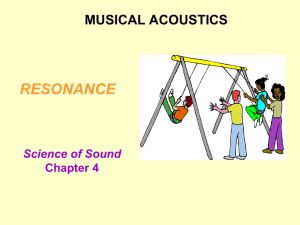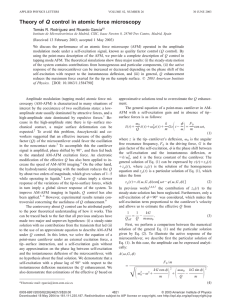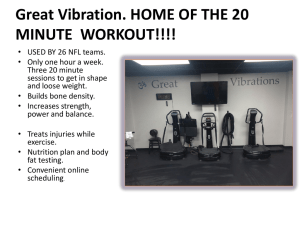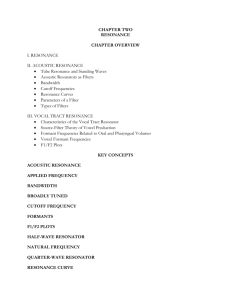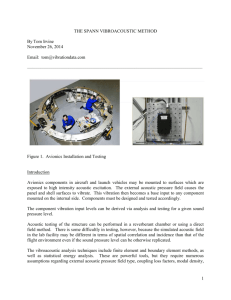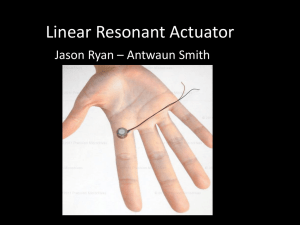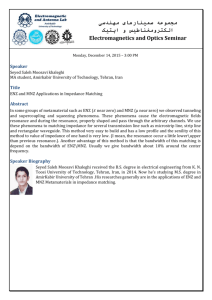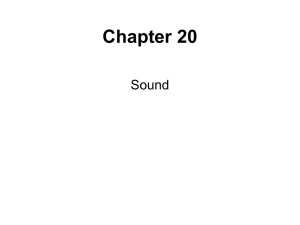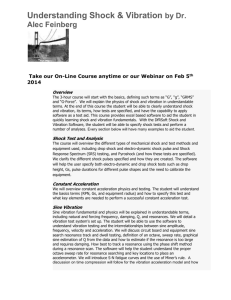RESONANCE CHAPTER 4
advertisement
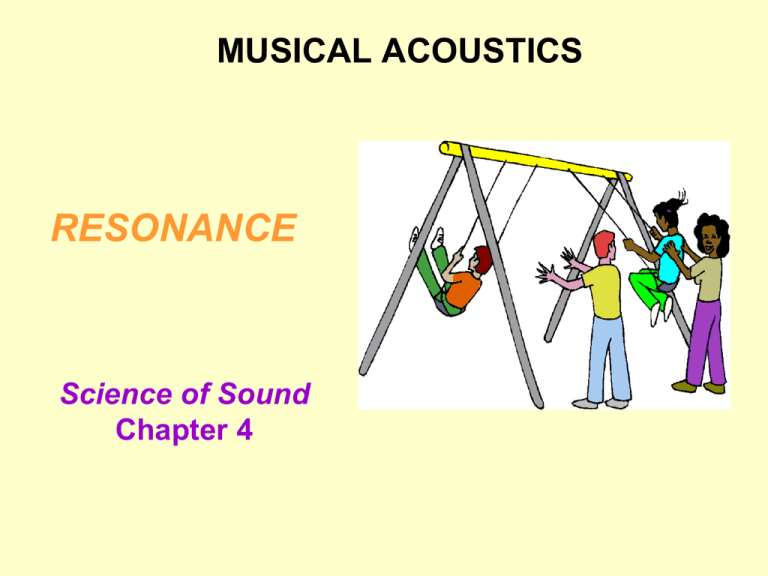
MUSICAL ACOUSTICS RESONANCE Science of Sound Chapter 4 Resonance Resonance occurs when a vibrating system is driven at its natural frequency. The amplitude of the vibrator reaches a maximum, limited only by the damping. PHASE DIFFERENCE BETWEEN CRANK AND MASS STANDING WAVES ON A STRING OPEN AND CLOSED PIPES OPEN PIPE CLOSED PIPE STANDING WAVES IN CYLINDRICAL AND CONICAL PIPES ACOUSTIC IMPEDANCE Acoustic impedance is the ratio of sound pressure p to volume velocity U ZA = p/U APPARATUS FOR GRAPHING THE ACOUSTIC IMPEDANCE OF WIND INSTRUMENTS HELMHOLTZ RESONATOR HELMHOLTZ RESONATOR TUNING FORK D.A. Russell, "On the sound field radiated by a tuning fork," Am. J. Phys., 68(12), 1139-45 (2000). CHOIRCHIMES CHOIRCHIME VIBRATIONS SINGING RODS AND WINEGLASSES SINGING RODS In a bar or rod with free ends the fundamental mode will have a node at its center, and the maximum vibration occurs at the ends (just as in a pipe open at both ends). The next mode has two modes at ¼ L and ¾ L Stroking an aluminum rod with the fingers to excite these longitudinal resonances can create rather loud sounds SELF-EXCITATION A linear force or motion can excite vibratory motion by a process called self-excitation. Examples of this are the stick-slip motion that excites a wineglass or a violin string SELF-EXCITATION A linear force or motion can excite vibratory motion by a process called self-excitation. Examples of this are the stick-slip motion that excites a wineglass or a violin string COLLAPSE OF THE TACOMA NARROWS BRIDGE A DRAMATIC CASE OF SELF-EXCITED OSCILLATION SYMPATHETIC VIBRATION The vibrating string of a piano or guitar excites the soundboard to vibrate (and thus to produce much more sound). This is called sympathetic vibration. Sympathetic vibration and self-excitation of vibration should not be confused with resonance. Assignment for January 21 Read Chapter 5 Exercises 1-8 (p.73) For extra credit: Driven harmonic analyzer (“Texas tower”) Make a graphs of amplitude vs frequency and phase angle vs frequency for 2 amounts of damping Show the modes of a wineglass that can be excited by rubbing with a finger; bowing radially with a violin bow; driving it with a loudspeaker. Ref: J. Acoust. Soc. Am. 95, 1108-1111 (1994).
